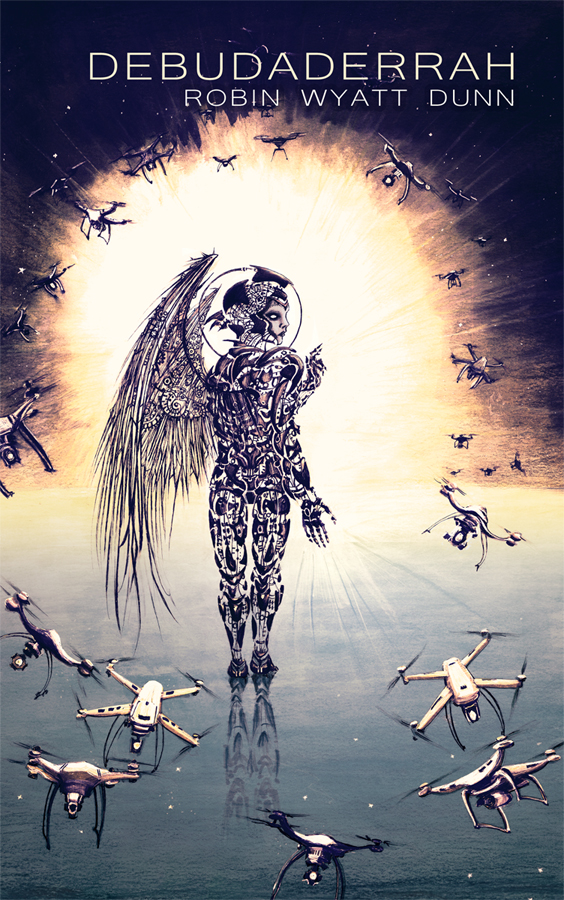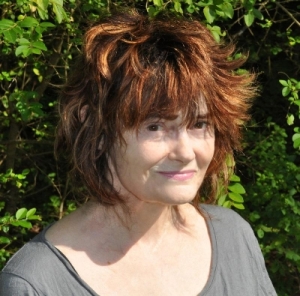A Review by New Pop Lit

“Come with me, brother, as we descend from Orbit onto Debudaderrah, that second and better Earth–“
What is this? A sci-fi novel? A poem? A dream? An “anarchic government of the mind,” to use a phrase from the book?
DEBUDADERRAH is about a journey to what might be a planet in a distant point of the universe- or a place in the narrator’s head. Speculative fiction at its most speculative, using former modes of sci-fi plotting as a foundation for wanderings literary and physical. As always with work by Robin Dunn, at the base of it all is his home city.
“What is a city like Los Angeles but another planet–“
Robin Dunn is one of the most talented writers in America– yes, for sheer imagination and wordplay– akin to a musical virtuoso who can play any genre, any style, jazz to blues to boogie to Debussy and Chopin. The trick for someone with the kind of ability which seems to come easy is harnessing it. Focusing the talent to sharpen the effect.
Dunn creates effects. Little literary explosions of insights on where we’re headed as a species and a civilization. Or where we exist, on a line between the illusion of material existence and the imaginations of the brain. The mind merging with robots– or with the universe.
“My name is Roberto, come from a planet called Earth, but this is not true. I am an alien, come from another dimension. And a robot, made by you–“
The novel-poem Debudaderrah is a puzzle. It’s not up to me, the reviewer, but you, the reader, to solve it. The key to the conundrum is in this sentence from the book:
“Picasso can occupy ten-dimensional spaces and so can I.”
Dunn has created the literary version of a Picasso painting, of several depths and dimensions, asking the reader to jump into it. To take the poetic trip. Every reader will find there a different experience.
***
Debudaderrah is available at several outlets, including here.

(Photo of Robin Wyatt Dunn.)


